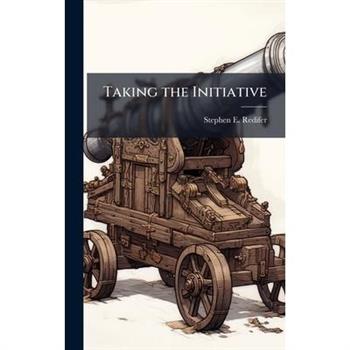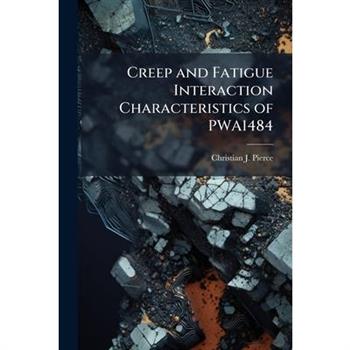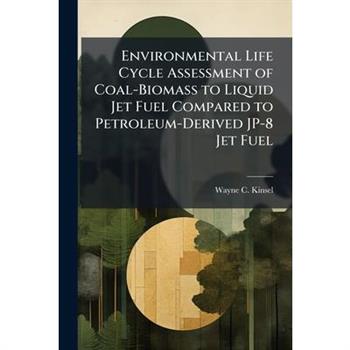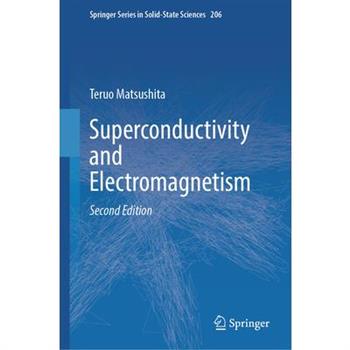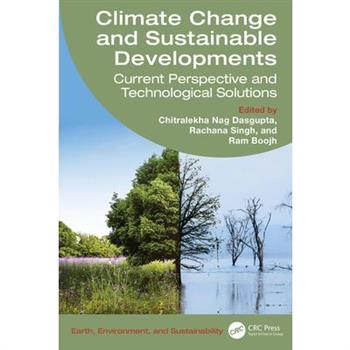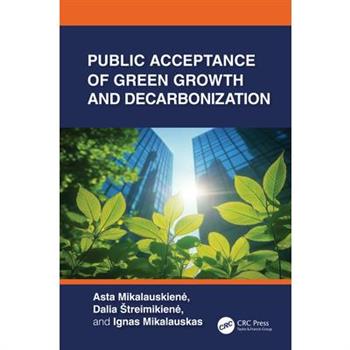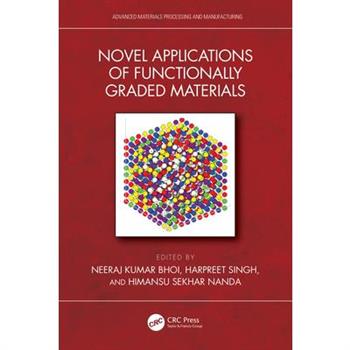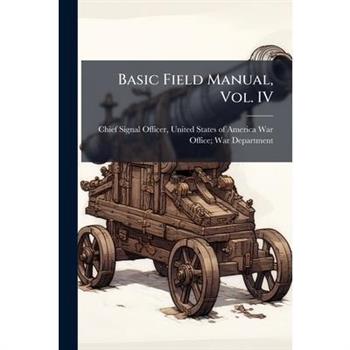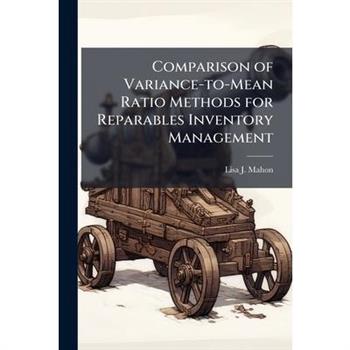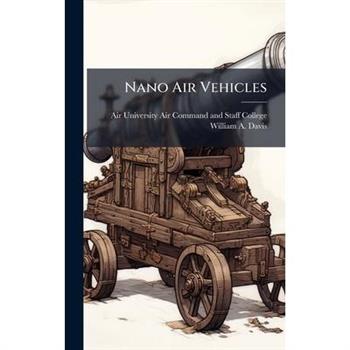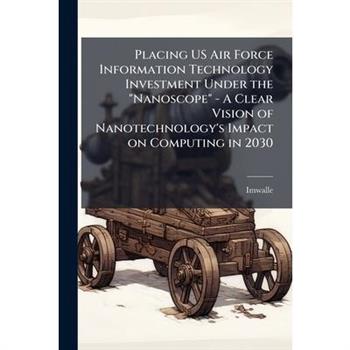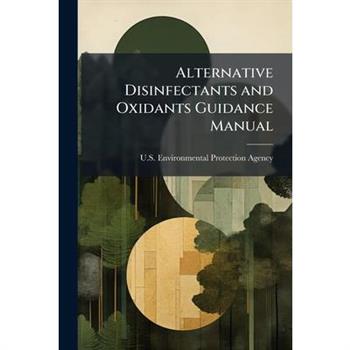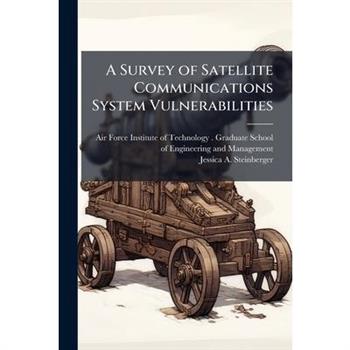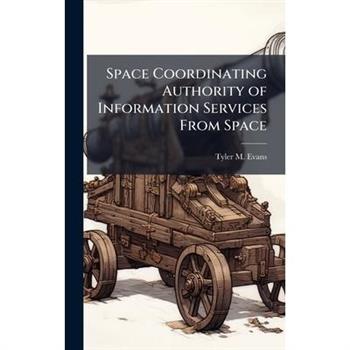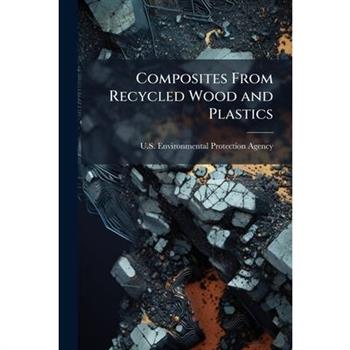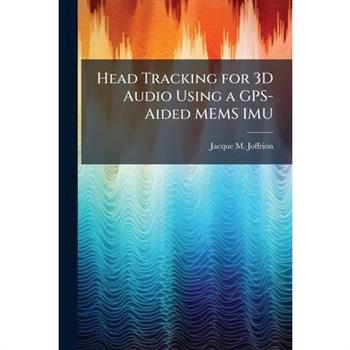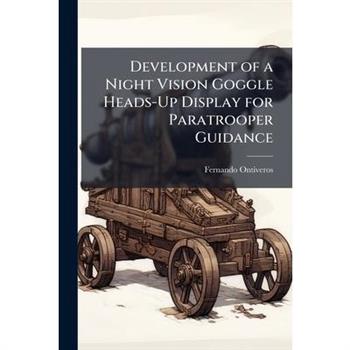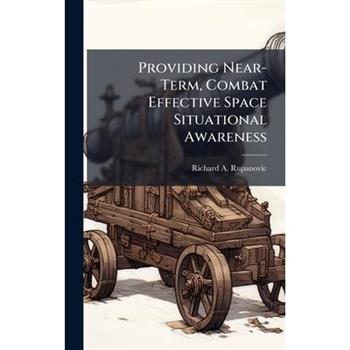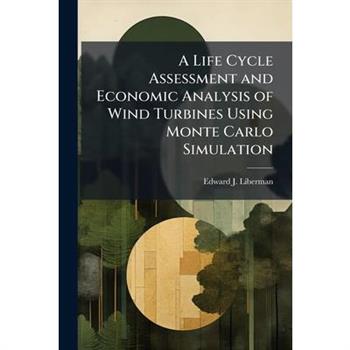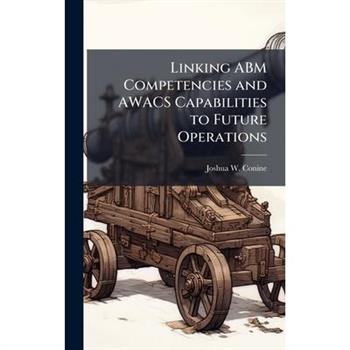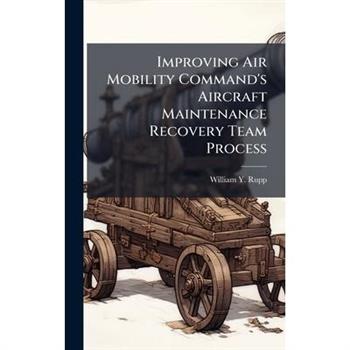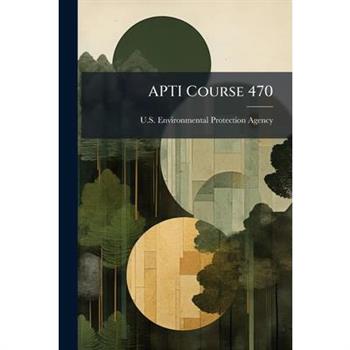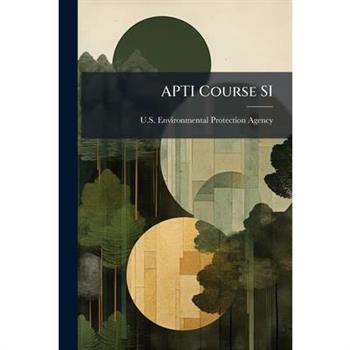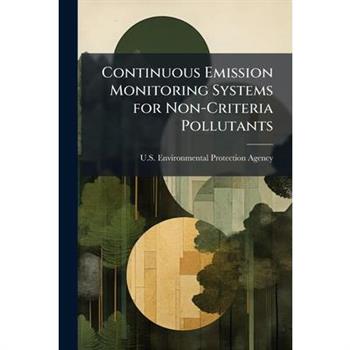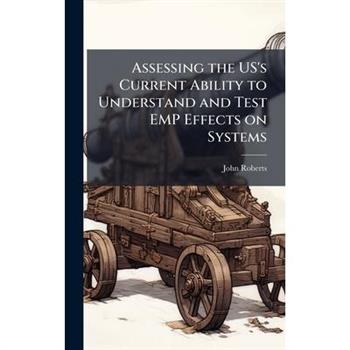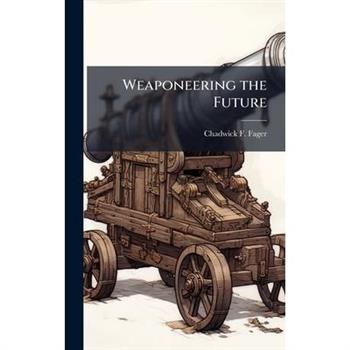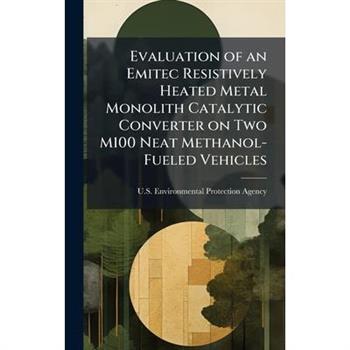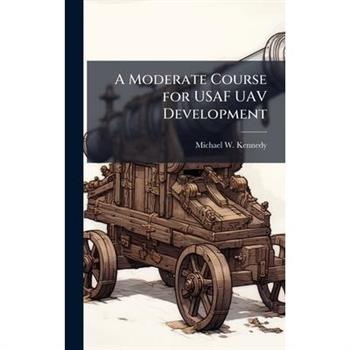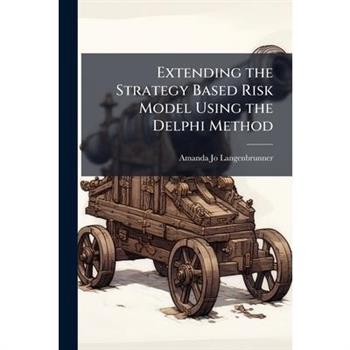The Last Manned Fighter
This research paper addresses the question of: Can and should the Air Force pursue a unmanned multi-role fighter to replace manned systems? Unmanned aircraft systems (UAS) have demonstrated enormous intelligence, surveillance, reconnaissance (ISR) capabilities in both flexibility and persistence. Current and emerging technology may permit unmanned fighters to replace conventional multi-role aircraft in the face of high endurance missions, evolving threat systems and political pressure to preserve human life. This research is framed in the context of a specialized weapon in military aviation; an unmanned multi-role fighter capable of replacing manned systems and their respective missions. This paper gives a brief history of unmanned air vehicles and their employment as weapons to demonstrate the evolution from ISR platform to unmanned combat air vehicle, then evolves into two main sections of "can we" and "should we" pursue this avenue of development. The primary means of answering the research question is both technical and philosophical. Before being able to answer if the Air Force should pursue an unmanned fighter it is necessary to determine if it is technically feasible for such a system. A methodical analysis of mission subsets and common tasks that fighters cuThis work has been selected by scholars as being culturally important, and is part of the knowledge base of civilization as we know it. This work was reproduced from the original artifact, and remains as true to the original work as possible. Therefore, you will see the original copyright references, library stamps (as most of these works have been housed in our most important libraries around the world), and other notations in the work.This work is in the public domain in the United States of America, and possibly other nations. Within the United States, you may freely copy and distribute this work, as no entity (individual or corporate) has a copyright on the body of the work.As a reproduction of a historical artifact, this work may contain missing or blurred pages, poor pictures, errant marks, etc. Scholars believe, and we concur, that this work is important enough to be preserved, reproduced, and made generally available to the public. We appreciate your support of the preservation process, and thank you for being an important part of keeping this knowledge alive and relevant.
Air Force Satellite Control Network
Originally designed in the late 1950s, the Air Force Satellite Network (AFSCN) was activated to support the Discoverer Program. Now the AFSCN provides global support for over 80 communication, navigation, missile warning, and meteorological satellites and other satellite systems for the DoD and Air Force. It has the flexibility to support Low-, Medium-, and High-altitude satellites operating in various orbits. The AFSCN is comprised of two satellite control centers, eight Remote Tracking Stations, a test facility, and a communications network linking it all together.This research paper demonstrates that the AFSCN is a force multiplier, and the center of gravity for military space operations, which needs increased security measures and upgrading. The AFSCN provides command and control capabilities for satellites that enhance several principles of war which regional commanders use to their advantage to shape the battlefield. The AFSCN faces the threats of terrorism, frequency intrusions, aging infrastructure, and budgetary constraints. In order to ensure the future of the AFSCN these threats need to be addressed. The DoD and the Air Force need to address these AFSCN threats by increasing security measures, re-writing operations orders, diplomatic relations, upgrading the infrastructure, and creating AFSCN interoperability. Taking these measures will ensure future survivability and sustainment of the AFSCN.This work has been selected by scholars as being culturally important, and is part of the knowledge base of civilization as we know it. This work was reproduced from the original artifact, and remains as true to the original work as possible. Therefore, you will see the original copyright references, library stamps (as most of these works have been housed in our most important libraries around the world), and other notations in the work.This work is in the public domain in the United States of America, and possibly other nations. Within the United States, you may freely copy and distribute this work, as no entity (individual or corporate) has a copyright on the body of the work.As a reproduction of a historical artifact, this work may contain missing or blurred pages, poor pictures, errant marks, etc. Scholars believe, and we concur, that this work is important enough to be preserved, reproduced, and made generally available to the public. We appreciate your support of the preservation process, and thank you for being an important part of keeping this knowledge alive and relevant.
Taking the Initiative
The 2001 Report of the Commission to Assess United States National Security Space Management and Organization stated that the United States is an attractive candidate for a "Space Pearl Harbor," and cited several vulnerabilities to include satellite malfunction, ground station equipment failures, hackers, as well as the Chinese threat. In June 2010, President Obama's National Space Policy of the United States of America established several principles, including one which states that the U.S. "will employ a variety of measures to help assure the use of space for all responsible parties, anddeter others from interference and attack." This is a complex and multi-faceted task, and there are several challenges associated with protecting US space systems, to include the assignment of a party responsible for protection and surveillance, vesting that agency with the necessary authority, training personnel in the importance of protecting space assets, and developing a comprehensive operational picture that provides sufficient granularity to not only prevent an attack, but should an attack occur, attribute it to the responsible party. This challenge is further exacerbated by the need to include a wide variety of agencies with numerous goals and cultures in any protection/surveillance schema.This work has been selected by scholars as being culturally important, and is part of the knowledge base of civilization as we know it. This work was reproduced from the original artifact, and remains as true to the original work as possible. Therefore, you will see the original copyright references, library stamps (as most of these works have been housed in our most important libraries around the world), and other notations in the work.This work is in the public domain in the United States of America, and possibly other nations. Within the United States, you may freely copy and distribute this work, as no entity (individual or corporate) has a copyright on the body of the work.As a reproduction of a historical artifact, this work may contain missing or blurred pages, poor pictures, errant marks, etc. Scholars believe, and we concur, that this work is important enough to be preserved, reproduced, and made generally available to the public. We appreciate your support of the preservation process, and thank you for being an important part of keeping this knowledge alive and relevant.
Creep and Fatigue Interaction Characteristics of PWA1484
One of the main methods for predicting the service life of jet engine turbine blades is through creep analysis. A sample of the turbine blade material will be mechanically tested to characterize its creep performance. This characterization will be used to determine safe operating conditions for the material. While methods for modeling creep behavior are generally well developed, this constant load creep testing does not fully represent the loading conditions present in a jet engine due to cyclic loading caused by the mission profile and throttle movements. As the industry seeks to become more accurate in physics based modeling of materials that are used in turbine blades, incorporation of these cyclic loads into the characterization of turbine blade materials is needed. It will be important to understand what effect pre-existing creep will have on fatigue life and what effect pre-existing fatigue loading will have on creep life. This research gives microstructural observations as well as data analysis of samples of PWA1484 tested at 871-C in creep-fatigue environment. This research resulted in the conclusion that prior fatigue cycling results in a non-linear reduction in the amount of primary creep, and an earlier transition to tertiary creep in PWA1484.This work has been selected by scholars as being culturally important, and is part of the knowledge base of civilization as we know it. This work was reproduced from the original artifact, and remains as true to the original work as possible. Therefore, you will see the original copyright references, library stamps (as most of these works have been housed in our most important libraries around the world), and other notations in the work.This work is in the public domain in the United States of America, and possibly other nations. Within the United States, you may freely copy and distribute this work, as no entity (individual or corporate) has a copyright on the body of the work.As a reproduction of a historical artifact, this work may contain missing or blurred pages, poor pictures, errant marks, etc. Scholars believe, and we concur, that this work is important enough to be preserved, reproduced, and made generally available to the public. We appreciate your support of the preservation process, and thank you for being an important part of keeping this knowledge alive and relevant.
Full Motion Video
This paper focuses on the capabilities of an emerging imagery medium known as Full Motion Video (FMV) and its potential to improve operational and intelligence support to all levels of warfare. While not a new technology, having been used on news helicopters for years, the US Air Force first successfully employed FMV sensors on the RQ-1 Predator remotely-piloted aircraft/unmanned aerial vehicle (RPA/UAV) over the Balkans in 1995. In spite of the exceptional success of numerous deployments throughout the Balkans and the Middle East over the past decade, the capabilities of the FMV sensor have not reached their full potential. This thesis evaluates this new imagery medium and its potential to provide near real-time situational awareness as well as improved command to tactical and operational warfighters at the same time that it provides four-dimensional imagery information to the imagery intelligence community.The key question this paper attempts to answer is, "How does the Tasking, Processing, Exploitation, and Dissemination (TPED) construct need to evolve to include and support the FMV medium?" In order to address the question, the study explores the background of the Predator program, establishes the baseline TPED construct, analyzes how well FMV fits within that construct, and offers suggestions regarding how that construct must change to best leverage the FMV medium.This work has been selected by scholars as being culturally important, and is part of the knowledge base of civilization as we know it. This work was reproduced from the original artifact, and remains as true to the original work as possible. Therefore, you will see the original copyright references, library stamps (as most of these works have been housed in our most important libraries around the world), and other notations in the work.This work is in the public domain in the United States of America, and possibly other nations. Within the United States, you may freely copy and distribute this work, as no entity (individual or corporate) has a copyright on the body of the work.As a reproduction of a historical artifact, this work may contain missing or blurred pages, poor pictures, errant marks, etc. Scholars believe, and we concur, that this work is important enough to be preserved, reproduced, and made generally available to the public. We appreciate your support of the preservation process, and thank you for being an important part of keeping this knowledge alive and relevant.
Environmental Life Cycle Assessment of Coal-Biomass to Liquid Jet Fuel Compared to Petroleum-Derived JP-8 Jet Fuel
The United States (U.S.) imported 57 percent of the petroleum products that it consumed in 2008. The Department of Defense (DOD) and in particular, the United States Air Force (USAF), consumes a large amount of oil to support the mission of defending the U.S. According to the USAF energy policy, by 2016, the Air Force (AF) must be prepared to cost competitively acquire 50 percent of its domestic aviation fuel requirement via an alternative fuel blend in which the alternative component is derived from domestic sources produced in a manner that is "greener" than fuels produced from conventional petroleum. This study employed a life cycle assessment (LCA) tool known as Economic Input-Output Life Cycle Assessment (EIO-LCA) to compare the petroleum derived jet fuel of JP-8 to the alternative jet fuel of Coal-Biomass to Liquid (CBTL) to determine which was "greener" by determining the total global warming potential (GWP) over each jet fuels' entire life cycle. The CBTL jet fuel was determined to be "greener" for the environment with utilizing carbon capture and storage (CCS) via the Fischer Tropsch (FT) synthesis process when producing liquid jet fuel from coal and swithchgrass as the biomass.This work has been selected by scholars as being culturally important, and is part of the knowledge base of civilization as we know it. This work was reproduced from the original artifact, and remains as true to the original work as possible. Therefore, you will see the original copyright references, library stamps (as most of these works have been housed in our most important libraries around the world), and other notations in the work.This work is in the public domain in the United States of America, and possibly other nations. Within the United States, you may freely copy and distribute this work, as no entity (individual or corporate) has a copyright on the body of the work.As a reproduction of a historical artifact, this work may contain missing or blurred pages, poor pictures, errant marks, etc. Scholars believe, and we concur, that this work is important enough to be preserved, reproduced, and made generally available to the public. We appreciate your support of the preservation process, and thank you for being an important part of keeping this knowledge alive and relevant.
Climate Change and Sustainable Developments
This book focusses on climate change and sustainable scientific/technological solutions, covering topics on pollution, extreme environments, greenhouse gases/global warming, effects of climate change on water resources/forest resources, depletion of fossil fuels and generation of renewable energy, human health, agriculture and food security.
Public Acceptance of Green Growth and Decarbonization
The book explores the crucial role of public acceptance in advancing green growth, decarbonization, and rapid advancements of renewable energy technologies. It shows that public acceptance is as critical as technological innovation. It provides theoretical frameworks that are tested in real life through case studies from around the world.
Novel Applications of Functionally Graded Materials
Novel Applications of Functionally Graded Materials offers a thorough understanding of the unique characteristics, characterization techniques, and inventive applications of functionally graded materials (FGMs). It covers a wide range of sophisticated functional materials, including metals, composites, polymers, and ceramics, exploring their unique characteristics, and using cutting-edge characterization methods. Detailed examinations of applications in the fields of energy, electronics, biology, and aerospace provide important new insights into the revolutionary potential of these materials across a range of sectors. Features: Cover effects of FGMs on fields including aerospace, automobile, electronics, energy, and medicine. Contains extensive discussions on the leading topics in the study of advanced functional and composite materials, backed by examples. Discusses consumer expectations and environmental sustainability issues related to the production of FGMs. Encompasses wide range of topics such as biomaterials, smart structures, rapid prototyping, and nanofinishing technologies, among many others. Explores how to create new materials with optimized properties and how to use those features to fulfill specific industrial requirements. This book is aimed at graduate students and researchers in materials science and manufacturing.
Lasers and Missile Defense
weapons? Recent advances in lasers, optics, and spacecraft technologies may bring high-energy laser weapons to a sufficient level of maturity for serious consideration as space weapons against the theater ballistic missile threat. However, these technological advances also make other architectures possible, such as the use of terrestrial laser sources with space-based relay mirrors or a mixed force of space-based lasers with orbiting relay mirrors. An important question is how these dramatic technology improvements have affected the strategic employment concepts for high-energy laser weapons. This study presents a comparison of competing space-based architectures given the progress made with high-energy lasers, large optics, and atmospheric compensation techniques within the past several years. Three space-based architectures are evaluated against the potential ballistic missile threat: space-based lasers, ground-based lasers in conjunction with orbiting mirrors, and a combined approach using space-based lasers with orbiting mirrors. The study evaluates the technological risks and estimates the development and deployment costs. In addition, technology development programs are described for each of the architectures so that the high-risk areas will be better understood. The conclusion of this study is that the most technologically sound and cost-effective architecture is to use space-based lasers with orbiting mirrors. This approach not only minimizes the overall technological risk but also reduces the total weight and, therefore, cost of placing these weapon systems on orbit.This work has been selected by scholars as being culturally important, and is part of the knowledge base of civilization as we know it. This work was reproduced from the original artifact, and remains as true to the original work as possible. Therefore, you will see the original copyright references, library stamps (as most of these works have been housed in our most important libraries around the world), and other notations in the work.This work is in the public domain in the United States of America, and possibly other nations. Within the United States, you may freely copy and distribute this work, as no entity (individual or corporate) has a copyright on the body of the work.As a reproduction of a historical artifact, this work may contain missing or blurred pages, poor pictures, errant marks, etc. Scholars believe, and we concur, that this work is important enough to be preserved, reproduced, and made generally available to the public. We appreciate your support of the preservation process, and thank you for being an important part of keeping this knowledge alive and relevant.
Basic Field Manual, Vol. IV
This text includes signal regulations and technical information needed by officers and enlisted men of arms other than the Signal Corps engaged in signal communication. It supplements the matter contained in chapter 7, Basic Field Manual, Volume VIII, and prescribes in detail the installation, maintenance, and operation of signal communication agencies which are employed at and forward of brigade headquarters. Chapters include topics on field wire systems, radio, visual signaling, dropped and pick-up airplane messages, message center, orders and instructions for signal communication troops, meteorological information, Signal supply, and a table of radio communication equipment.This work has been selected by scholars as being culturally important, and is part of the knowledge base of civilization as we know it. This work was reproduced from the original artifact, and remains as true to the original work as possible. Therefore, you will see the original copyright references, library stamps (as most of these works have been housed in our most important libraries around the world), and other notations in the work.This work is in the public domain in the United States of America, and possibly other nations. Within the United States, you may freely copy and distribute this work, as no entity (individual or corporate) has a copyright on the body of the work.As a reproduction of a historical artifact, this work may contain missing or blurred pages, poor pictures, errant marks, etc. Scholars believe, and we concur, that this work is important enough to be preserved, reproduced, and made generally available to the public. We appreciate your support of the preservation process, and thank you for being an important part of keeping this knowledge alive and relevant.
Comparison of Variance-to-Mean Ratio Methods for Reparables Inventory Management
In an effort to improve aircraft availability, this research compared the efficiency of ten methods of determining variance-to-mean ratios (VTMRs, VMRs, V/Ms) for repairable, spare aircraft parts known as reparables. These methods are base pipeline quantity, Hill-Stevens (220 LRUs), a variation of Hill-Stevens (10 1s), Hill-Stevens (230 LRUs), the Sherbrooke, a variation of Sherbrooke (10 1s), historical data, a new regression function, variance-to-mean ratio equals 1.00 or variance-to-mean ratio equals 1.01. Using VTMRs derived from quarterly organizational intermediate maintenance (OIM) demands for line-replaceable units (LRUs) from the D200A Secondary Item Requirement System (SIRS) databases in aircraft sustainability model scenarios and Excel spreadsheet simulation, this research concluded the VTMRs have an impact on aircraft availability and the cost of inventory.This work has been selected by scholars as being culturally important, and is part of the knowledge base of civilization as we know it. This work was reproduced from the original artifact, and remains as true to the original work as possible. Therefore, you will see the original copyright references, library stamps (as most of these works have been housed in our most important libraries around the world), and other notations in the work.This work is in the public domain in the United States of America, and possibly other nations. Within the United States, you may freely copy and distribute this work, as no entity (individual or corporate) has a copyright on the body of the work.As a reproduction of a historical artifact, this work may contain missing or blurred pages, poor pictures, errant marks, etc. Scholars believe, and we concur, that this work is important enough to be preserved, reproduced, and made generally available to the public. We appreciate your support of the preservation process, and thank you for being an important part of keeping this knowledge alive and relevant.
Analysis of Air Force Civil Engineering Strategic Planning
Several organizations within the Department of Defense, including the Air Force Civil Engineer, are actively engaged in strategic planning in an effort to create a roadmap for future capabilities and performance. The objective of this research was to analyze the strategic planning process of the Air Force Civil Engineer (CE) as well as the effectiveness of the Civil Engineer Strategic Plan (CESP). The methodology used to complete this analysis was conducted in two distinct phases: 1) process modeling and evaluation, and 2) performance measure evaluation.This work has been selected by scholars as being culturally important, and is part of the knowledge base of civilization as we know it. This work was reproduced from the original artifact, and remains as true to the original work as possible. Therefore, you will see the original copyright references, library stamps (as most of these works have been housed in our most important libraries around the world), and other notations in the work.This work is in the public domain in the United States of America, and possibly other nations. Within the United States, you may freely copy and distribute this work, as no entity (individual or corporate) has a copyright on the body of the work.As a reproduction of a historical artifact, this work may contain missing or blurred pages, poor pictures, errant marks, etc. Scholars believe, and we concur, that this work is important enough to be preserved, reproduced, and made generally available to the public. We appreciate your support of the preservation process, and thank you for being an important part of keeping this knowledge alive and relevant.
Ufc 3-600-01
Unified Facilities Criteria (UFC) documents provide planning, design, construction, sustainment, restoration, and modernization criteria. They also apply to the Military Departments, the Defense Agencies, and the DoD Field Activities in accordance with USD (AT&L) Memorandum dated 29 May 2002. The United States Army Corps of Engineers (HQUSACE), Naval Facilities Engineering Command (NAVFAC) and the Office of the Air Force Civil Engineer are responsible for administration of the UFC system. This is one of those documents.This work has been selected by scholars as being culturally important, and is part of the knowledge base of civilization as we know it. This work was reproduced from the original artifact, and remains as true to the original work as possible. Therefore, you will see the original copyright references, library stamps (as most of these works have been housed in our most important libraries around the world), and other notations in the work.This work is in the public domain in the United States of America, and possibly other nations. Within the United States, you may freely copy and distribute this work, as no entity (individual or corporate) has a copyright on the body of the work.As a reproduction of a historical artifact, this work may contain missing or blurred pages, poor pictures, errant marks, etc. Scholars believe, and we concur, that this work is important enough to be preserved, reproduced, and made generally available to the public. We appreciate your support of the preservation process, and thank you for being an important part of keeping this knowledge alive and relevant.
Future Air Force Operations in Cyberspace
"The United States Air Force is poised to make another technological and strategic leap that has marked its short and storied history. The delivery of payloads of consequence over strategic distance is a hallmark of the Air Force contribution to national defense. Over the last sixty years the threats have changed and the Air Force has combined ideas, technology, and doctrine to produce effects, relevant to their era, that give the President an enduring suite of capabilities to the nation. The emergence of cyberspace as a recognized domain is the latest in a series of technology based mission sets dating back to the beginning of air power. Three cases have emerged and endured over the last 60 years. The 1930s and 1940s were years of strategic bombing. For the first several years of World War II, the only direct action against Nazi Germany was the strategic bomber. The strategic nature of the bomber and missile forces delivering nuclear payloads dominated the 1950s and 1960s. The 1980s and 1990s saw the Air Force recognize that a new operational domain and the enabling technology were emerging in space. Technology now enables precision strike and expeditionary operations as a timely projection of power that enables rapid response and immediately available strategic options. Cyberspace operations are in the idea phase right now. The pace of change and advancement in technology is such that it is impractical and imprudent to wait to determine cyberspaces military implications. Regardless of the outcome, the Air Force has made the first move amongst the services in raising cyberspace operations to the status of operational domain and establishing itself once again as the leader in developing new capabilities and effects relevant to current strategic threats and concerns."--Abstract from web site.This work has been selected by scholars as being culturally important, and is part of the knowledge base of civilization as we know it. This work was reproduced from the original artifact, and remains as true to the original work as possible. Therefore, you will see the original copyright references, library stamps (as most of these works have been housed in our most important libraries around the world), and other notations in the work.This work is in the public domain in the United States of America, and possibly other nations. Within the United States, you may freely copy and distribute this work, as no entity (individual or corporate) has a copyright on the body of the work.As a reproduction of a historical artifact, this work may contain missing or blurred pages, poor pictures, errant marks, etc. Scholars believe, and we concur, that this work is important enough to be preserved, reproduced, and made generally available to the public. We appreciate your support of the preservation process, and thank you for being an important part of keeping this knowledge alive and relevant.
Nano Air Vehicles
This paper documents the result of a future technology forecast study to determine when operationally useful nano aerial vehicles or NAVs will be achieved. This was accomplished as part of the Blue Horizons Research Team tasked by the Chief of Staff of the United States Air Force to explore emerging technologies and make recommendations for long range investment. This study utilized a future forecasting method called the Delphi Method which was developed by the RAND Corporation in the 1960s to make the forecast. The results indicate NAVs capable of operating in swarms will be available within 10 years to perform operational missions. This paper recommends the Air Force begin work now to fully develop operational concepts and requirements for NAVs to guide future development work and enter the Joint Capabilities and Integration Development System to fully define capability requirements for swarming NAVs across the services to gain efficiencies in development and acquisition of these systems and to avoid duplicative requirements and programs.This work has been selected by scholars as being culturally important, and is part of the knowledge base of civilization as we know it. This work was reproduced from the original artifact, and remains as true to the original work as possible. Therefore, you will see the original copyright references, library stamps (as most of these works have been housed in our most important libraries around the world), and other notations in the work.This work is in the public domain in the United States of America, and possibly other nations. Within the United States, you may freely copy and distribute this work, as no entity (individual or corporate) has a copyright on the body of the work.As a reproduction of a historical artifact, this work may contain missing or blurred pages, poor pictures, errant marks, etc. Scholars believe, and we concur, that this work is important enough to be preserved, reproduced, and made generally available to the public. We appreciate your support of the preservation process, and thank you for being an important part of keeping this knowledge alive and relevant.
Placing US Air Force Information Technology Investment Under the "Nanoscope" - A Clear Vision of Nanotechnology's Impact on Computing in 2030
The United States Air Force's Center for Strategy and Technology was established atthe Air War College in 1996. Its purpose is to engage in long-term strategic thinkingabout technology and its implications for United States national security. The Center(CSAT) focuses on education, research, and publications that support the integrationof technology into national strategy and policy. This document is one of thesepublications.This work has been selected by scholars as being culturally important, and is part of the knowledge base of civilization as we know it. This work was reproduced from the original artifact, and remains as true to the original work as possible. Therefore, you will see the original copyright references, library stamps (as most of these works have been housed in our most important libraries around the world), and other notations in the work.This work is in the public domain in the United States of America, and possibly other nations. Within the United States, you may freely copy and distribute this work, as no entity (individual or corporate) has a copyright on the body of the work.As a reproduction of a historical artifact, this work may contain missing or blurred pages, poor pictures, errant marks, etc. Scholars believe, and we concur, that this work is important enough to be preserved, reproduced, and made generally available to the public. We appreciate your support of the preservation process, and thank you for being an important part of keeping this knowledge alive and relevant.
Cyber-Based C4ISR Asset
"The cornerstone of the USAF's global strike and rapid global mobility is its vast cyber-based C4ISR network. The USAF has become so dependent on cyber-based C4ISR capabilities that the network itself has truly become a center of gravity. Unfortunately, the network's critical requirements are highly susceptible to attack from a number of threats. As a result, one of the USAF's greatest capabilities has also become one of its greatest vulnerabilities. Using open-source documentation, this paper outlines the grave threat to the USAF's cyber-based C4ISR and suggests how the USAF should prepare its forces to operate in a cyber-denied environment."--Abstract.This work has been selected by scholars as being culturally important, and is part of the knowledge base of civilization as we know it. This work was reproduced from the original artifact, and remains as true to the original work as possible. Therefore, you will see the original copyright references, library stamps (as most of these works have been housed in our most important libraries around the world), and other notations in the work.This work is in the public domain in the United States of America, and possibly other nations. Within the United States, you may freely copy and distribute this work, as no entity (individual or corporate) has a copyright on the body of the work.As a reproduction of a historical artifact, this work may contain missing or blurred pages, poor pictures, errant marks, etc. Scholars believe, and we concur, that this work is important enough to be preserved, reproduced, and made generally available to the public. We appreciate your support of the preservation process, and thank you for being an important part of keeping this knowledge alive and relevant.
Caught in a Jam
Caught in a Jam: the US Air Force's Electronic Attack Conundrum Stealth or low-observable aircraft are not a substitute for air defense suppression. As Air Force leaders strive to recapitalize the air fleet with fifth generation capability, they are failing to address a core component of modern air combat--electronic attack (EA). Electronic attack is the shield that protects all generations of air assets from the bite of integrated air defense systems. No form of warfare, including stealth air warfare, is sufficient on its own. All are able to be threatened in ways that make them vulnerable to attack. This lesson was evident in Kosovo almost a decade ago when Serbians armed with early generation surface-to-air missiles where able to track, target, and shoot down an F-117 stealth fighter. This lesson seems lost, unfortunately, by today's air leaders seeking to acquire more advanced, high-priced, fighters to re-posture our nation's air inventory. While these procurements are certainly warranted, they do not guarantee a significantly higher probability of success without adequate support jamming assets in the anti-access environment of an advanced, sophisticated air defense network. Our adversaries have the benefit of observing two decades of stealth employment and are not complacent. The Air Force must take bold steps now to cement its stake in securing the shield that has protected coalition air assets since the Vietnam War. If the Air Force continues to ignore the EA gap staring them in the face, the fundamental operational concept of air employment will be significantly altered and the entire force structure will be at greater risk. The US Navy has provided electronic attack for the joint force since the mid-1990's when the Air Force decided to retire its EF-111 and RF-4 airframes in the wake of the successes of the Persian Gulf War. Stealth technology was seen as a panacea for defeating air defense systems. The Navy, lacking organic stealth capability, decided tThis work has been selected by scholars as being culturally important, and is part of the knowledge base of civilization as we know it. This work was reproduced from the original artifact, and remains as true to the original work as possible. Therefore, you will see the original copyright references, library stamps (as most of these works have been housed in our most important libraries around the world), and other notations in the work.This work is in the public domain in the United States of America, and possibly other nations. Within the United States, you may freely copy and distribute this work, as no entity (individual or corporate) has a copyright on the body of the work.As a reproduction of a historical artifact, this work may contain missing or blurred pages, poor pictures, errant marks, etc. Scholars believe, and we concur, that this work is important enough to be preserved, reproduced, and made generally available to the public. We appreciate your support of the preservation process, and thank you for being an important part of keeping this knowledge alive and relevant.
Alternative Disinfectants and Oxidants Guidance Manual
The U.S. Environmental Protection Agency (EPA) was introduced on December 2, 1970 by President Richard Nixon. The agency is charged with protecting human health and the environment, by writing and enforcing regulations based on laws passed by Congress. The EPA's struggle to protect health and the environment is seen through each of its official publications. These publications outline new policies, detail problems with enforcing laws, document the need for new legislation, and describe new tactics to use to solve these issues. This collection of publications ranges from historic documents to reports released in the new millennium, and features works like: Bicycle for a Better Environment, Health Effects of Increasing Sulfur Oxides Emissions Draft, and Women and Environmental Health.This work has been selected by scholars as being culturally important, and is part of the knowledge base of civilization as we know it. This work was reproduced from the original artifact, and remains as true to the original work as possible. Therefore, you will see the original copyright references, library stamps (as most of these works have been housed in our most important libraries around the world), and other notations in the work.This work is in the public domain in the United States of America, and possibly other nations. Within the United States, you may freely copy and distribute this work, as no entity (individual or corporate) has a copyright on the body of the work.As a reproduction of a historical artifact, this work may contain missing or blurred pages, poor pictures, errant marks, etc. Scholars believe, and we concur, that this work is important enough to be preserved, reproduced, and made generally available to the public. We appreciate your support of the preservation process, and thank you for being an important part of keeping this knowledge alive and relevant.
A Survey of Satellite Communications System Vulnerabilities
The U.S. military's increasing reliance on commercial and military communications satellites to enable widely-dispersed, mobile forces to communicate makes these space assets increasingly vulnerable to attack by adversaries. Attacks on these satellites could cause military communications to become unavailable at critical moments during a conflict. This research dissected a typical satellite communications system in order to provide an understanding of the possible attacker entry points into the system, to determine the vulnerabilities associated with each of these access points, and to analyze the possible impacts of these vulnerabilities to U.S. military operations. By understanding these vulnerabilities of U.S. communications satellite systems, methods can be developed to mitigate these threats and protect future systems. This research concluded that the satellite antenna is the most vulnerable component of the satellite communications system's space segment. The antenna makes the satellite vulnerable to intentional attacks such as: RF jamming, spoofing, meaconing, and deliberate physical attack. The most vulnerable Earth segment component was found to be the Earth station network, which incorporates both Earth station and NOC vulnerabilities. Earth segment vulnerabilities include RF jamming, deliberate physical attack, and Internet connection vulnerabilities. The most vulnerable user segment components were found to be the SSPs and PoPs. SSPs are subject to the vulnerabilities of the services offered, the vulnerabilities of Internet connectivity, and the vulnerabilities associated with operating the VSAT central hub. PoPs are susceptible to the vulnerabilities of the PoP routers, the vulnerabilities of Internet and Intranet connectivity, and the vulnerabilities associated with cellular network access.This work has been selected by scholars as being culturally important, and is part of the knowledge base of civilization as we know it. This work was reproduced from the original artifact, and remains as true to the original work as possible. Therefore, you will see the original copyright references, library stamps (as most of these works have been housed in our most important libraries around the world), and other notations in the work.This work is in the public domain in the United States of America, and possibly other nations. Within the United States, you may freely copy and distribute this work, as no entity (individual or corporate) has a copyright on the body of the work.As a reproduction of a historical artifact, this work may contain missing or blurred pages, poor pictures, errant marks, etc. Scholars believe, and we concur, that this work is important enough to be preserved, reproduced, and made generally available to the public. We appreciate your support of the preservation process, and thank you for being an important part of keeping this knowledge alive and relevant.
Space Coordinating Authority of Information Services From Space
In recognizing the importance of space power to military operations, doctrine recommends a single authority to coordinate joint theater space operations and integrate space capabilities. The Joint Force Commander (JFC) may designate a space coordinating authority (SCA) to facilitate unity of effort in employing space power. Unity of effort is crucial, as unity of command is problematic. Military operations often exploit civil, commercial, national, and military space capabilities to aid and accelerate observations, decisions, and actions across the entire spectrum of conflict. Space capabilities are foundational to the information domain providing communications, warning, intelligence, surveillance, reconnaissance, positioning, navigation, timing, environmental and weather data. Information services from space improve operations through space-integrated applications of combat powerThe space power combination of supporting space information services and space superiority is a force multiplier for military commanders. The JFC needs SCA to deconflict, prioritize, and integrate space capabilities by optimizing usage of finite space resources from various sources. This paper, from an Airman's perspective for operations in joint and coalition environments, proposes a space power framework for the JFC to employ SCA. It explores space capabilities and the responsibilities of SCA. With the advent of the new Director of Space Forces (DIRSPACEFOR) construct in Air Force doctrine, it provides recommended doctrinal changes to SCA responsibilities. It offers intellectual thought for coordinating and controlling space power at the operational level of war.This work has been selected by scholars as being culturally important, and is part of the knowledge base of civilization as we know it. This work was reproduced from the original artifact, and remains as true to the original work as possible. Therefore, you will see the original copyright references, library stamps (as most of these works have been housed in our most important libraries around the world), and other notations in the work.This work is in the public domain in the United States of America, and possibly other nations. Within the United States, you may freely copy and distribute this work, as no entity (individual or corporate) has a copyright on the body of the work.As a reproduction of a historical artifact, this work may contain missing or blurred pages, poor pictures, errant marks, etc. Scholars believe, and we concur, that this work is important enough to be preserved, reproduced, and made generally available to the public. We appreciate your support of the preservation process, and thank you for being an important part of keeping this knowledge alive and relevant.
A Framework for Prognostics Reasoning
The use of system data to make predictions about the future system state, commonly known as prognostics, is a rapidly developing field. Prognostics seeks to build on current diagnostic equipment capabilities for its predictive capability. Many military systems, including the Joint Strike Fighter (JSF), are planning to include on-board prognostics systems to enhance system supportability and affordability. Current research efforts supporting these developments tend to focus on developing a prognostic tool for one specific system component. This dissertation research presents a comprehensive literature review of these developing research efforts. It also develops presents a mathematical model for the optimum allocation of prognostics sensors and their associated classifiers on a given system and all of its components. The model assumptions about system criticality are consistent with current industrial philosophies. This research also develops methodologies for combining sensor classifiers to allow for the selection of the best sensor ensemble.This work has been selected by scholars as being culturally important, and is part of the knowledge base of civilization as we know it. This work was reproduced from the original artifact, and remains as true to the original work as possible. Therefore, you will see the original copyright references, library stamps (as most of these works have been housed in our most important libraries around the world), and other notations in the work.This work is in the public domain in the United States of America, and possibly other nations. Within the United States, you may freely copy and distribute this work, as no entity (individual or corporate) has a copyright on the body of the work.As a reproduction of a historical artifact, this work may contain missing or blurred pages, poor pictures, errant marks, etc. Scholars believe, and we concur, that this work is important enough to be preserved, reproduced, and made generally available to the public. We appreciate your support of the preservation process, and thank you for being an important part of keeping this knowledge alive and relevant.
Composites From Recycled Wood and Plastics
The U.S. Environmental Protection Agency (EPA) was introduced on December 2, 1970 by President Richard Nixon. The agency is charged with protecting human health and the environment, by writing and enforcing regulations based on laws passed by Congress. The EPA's struggle to protect health and the environment is seen through each of its official publications. These publications outline new policies, detail problems with enforcing laws, document the need for new legislation, and describe new tactics to use to solve these issues. This collection of publications ranges from historic documents to reports released in the new millennium, and features works like: Bicycle for a Better Environment, Health Effects of Increasing Sulfur Oxides Emissions Draft, and Women and Environmental Health.This work has been selected by scholars as being culturally important, and is part of the knowledge base of civilization as we know it. This work was reproduced from the original artifact, and remains as true to the original work as possible. Therefore, you will see the original copyright references, library stamps (as most of these works have been housed in our most important libraries around the world), and other notations in the work.This work is in the public domain in the United States of America, and possibly other nations. Within the United States, you may freely copy and distribute this work, as no entity (individual or corporate) has a copyright on the body of the work.As a reproduction of a historical artifact, this work may contain missing or blurred pages, poor pictures, errant marks, etc. Scholars believe, and we concur, that this work is important enough to be preserved, reproduced, and made generally available to the public. We appreciate your support of the preservation process, and thank you for being an important part of keeping this knowledge alive and relevant.
Head Tracking for 3D Audio Using a GPS-Aided MEMS IMU
Audio systems have been developed which use stereo headphones to project sound in three dimensions. When using these 3D audio systems, audio cues sound like they are originating from a particular direction. There is a desire to apply 3D audio to general aviation applications, such as projecting control tower transmissions in the direction of the tower or providing an audio orientation cue for VFR pilots who find themselves in emergency zero-visibility conditions. 3D audio systems, however, require real-time knowledge of the pilot's head orientation in order to be effective. This research describes the development and testing of a low-cost head tracking system for 3D audio rendering applied in general aviation. The system uses a low-cost MEMS IMU combined with a low-cost, single frequency GPS receiver. Real-time data from both of these systems was sent to a laptop computer where a real-time Kalman filter was implemented in MATLAB to solve for position velocity, and attitude. The attitude information was then sent to a 3D audio system for sound direction rendering. The system was flight tested on board a Raytheon C-12C aircraft. The accuracy of the system was measured by comparing its output to truth data from a high-accuracy post-processed navigation-grade INS/DGPS solution. Results showed that roll and pitch error were accurate to within 1-2 degrees, but that heading error was dependent upon the flight trajectory. During straight-and-level flight, the heading error would drift up to 10-15 degrees because of heading unobservability. However, even with heading error, the ability of a pilot to determine the correct direction of a 3D audio cue was significantly improved when using the developed head tracking system over using the navigation-grade INS/GPS system fixed to the aircraft.This work has been selected by scholars as being culturally important, and is part of the knowledge base of civilization as we know it. This work was reproduced from the original artifact, and remains as true to the original work as possible. Therefore, you will see the original copyright references, library stamps (as most of these works have been housed in our most important libraries around the world), and other notations in the work.This work is in the public domain in the United States of America, and possibly other nations. Within the United States, you may freely copy and distribute this work, as no entity (individual or corporate) has a copyright on the body of the work.As a reproduction of a historical artifact, this work may contain missing or blurred pages, poor pictures, errant marks, etc. Scholars believe, and we concur, that this work is important enough to be preserved, reproduced, and made generally available to the public. We appreciate your support of the preservation process, and thank you for being an important part of keeping this knowledge alive and relevant.
Development of a Night Vision Goggle Heads-Up Display for Paratrooper Guidance
This thesis provides the proof of concept for the development and implementation of a Global Positioning System (GPS) display via Night Vision Goggles (NVG) Heads-Up Display (HUD) for paratroopers. The system has been designed for soldiers who will be able to utilize the technology in the form of a processing system worn in an ammo pouch and displayed via NVG HUD as a tunnel in the sky. The tunnel in the sky display design is essentially a series of boxes displayed within the goggle's HUD leading the paratrooper to the desired Landing Zone (LZ). The algorithm developed is effective and e cient in order to receive GPS sensor data, correlate head-tracking data, and display the combined information in the paratrooper's NVG HUD as the tunnel in the sky. The primary goal of the project is to provide a product which allows Special Operations personnel to reach a desired LZ in obscured visibility conditions, i.e. darkness, clouds, smoke, and other unforeseen situations. This allows missions to be carried out around the clock, even in adverse visibility conditions which would normally halt operations.This work has been selected by scholars as being culturally important, and is part of the knowledge base of civilization as we know it. This work was reproduced from the original artifact, and remains as true to the original work as possible. Therefore, you will see the original copyright references, library stamps (as most of these works have been housed in our most important libraries around the world), and other notations in the work.This work is in the public domain in the United States of America, and possibly other nations. Within the United States, you may freely copy and distribute this work, as no entity (individual or corporate) has a copyright on the body of the work.As a reproduction of a historical artifact, this work may contain missing or blurred pages, poor pictures, errant marks, etc. Scholars believe, and we concur, that this work is important enough to be preserved, reproduced, and made generally available to the public. We appreciate your support of the preservation process, and thank you for being an important part of keeping this knowledge alive and relevant.
Providing Near-Term, Combat Effective Space Situational Awareness
Early on in the space age, the US and USSR tacitly agreed not to interfere with each other's satellite operations. This served to significantly reduce tensions during the Cold War. However, it also resulted in eliminated any hostile threats to space systems. In the absence of this threat, US development of Space Situation Awareness (SSA) capabilities concentrated on locating, identifying, and tracking as many orbiting objects as possible. A robust network of sensor sites and control nodes were built, and these have met most, if not all, warfighter needs for over fifty years. Today's situation has changed. Space has become indispensable to US national security. Nations have already denied or tried to deny space capabilities to other nations, and threats continue to proliferate. Leaders inside and outside the military recognize this, and a number of programs are in development to provide more robust SSA. However, until these systems are operational, a potentially dangerous vulnerability exists. Quick, cost-effective capabilities need to be implemented to fill this gap.This work has been selected by scholars as being culturally important, and is part of the knowledge base of civilization as we know it. This work was reproduced from the original artifact, and remains as true to the original work as possible. Therefore, you will see the original copyright references, library stamps (as most of these works have been housed in our most important libraries around the world), and other notations in the work.This work is in the public domain in the United States of America, and possibly other nations. Within the United States, you may freely copy and distribute this work, as no entity (individual or corporate) has a copyright on the body of the work.As a reproduction of a historical artifact, this work may contain missing or blurred pages, poor pictures, errant marks, etc. Scholars believe, and we concur, that this work is important enough to be preserved, reproduced, and made generally available to the public. We appreciate your support of the preservation process, and thank you for being an important part of keeping this knowledge alive and relevant.
Unmanned Horizons
The one and only shot the US had against Osama bin Laden was all down to a new surveillance aircraft the CIA was still testing and evaluating at the time. Commanders decided putting the small unmanned drone, what was then called a UAV, through a little 'real world' experience might be interesting. The shot was not taken due to a mix of domestic political and diplomatic reasons. Indeed one problem was that the closest 'shooter' or USAF fighter would have had to violate allied airspace unannounced - a tough ask during an unstable nuclear stand-off between Pakistan and India.This work has been selected by scholars as being culturally important, and is part of the knowledge base of civilization as we know it. This work was reproduced from the original artifact, and remains as true to the original work as possible. Therefore, you will see the original copyright references, library stamps (as most of these works have been housed in our most important libraries around the world), and other notations in the work.This work is in the public domain in the United States of America, and possibly other nations. Within the United States, you may freely copy and distribute this work, as no entity (individual or corporate) has a copyright on the body of the work.As a reproduction of a historical artifact, this work may contain missing or blurred pages, poor pictures, errant marks, etc. Scholars believe, and we concur, that this work is important enough to be preserved, reproduced, and made generally available to the public. We appreciate your support of the preservation process, and thank you for being an important part of keeping this knowledge alive and relevant.
JSTARS, E-10A and the Kill Chain
This research paper examines the Joint Surveillance Target Attack Radar System (JSTARS), its successes and shortfalls, its eventual replacement, the E-10A, and how both fit into the Find, Fix, Track, Target, Engage, and Assess (F2T2EA) Kill Chain construct for Effects-Based Operations in a Network-Centric environment. Information Superiority is a key enabler for dominance of the 21st Century battlespace. To this end, sensor-to-shooter operations are crucial for timely enemy force attrition. JSTARS' ability to conduct Intelligence, Surveillance, and Reconnaissance (ISR) as well as command and control operations is a lynchpin to providing the Joint Force Commander the predictive battlespace awareness (PBA) necessary for combat operations. Despite limitations in training, joint force education and experience, and its utilization in the Kill Chain, JSTARS' role will only increase in importance and expand with the fielding of the E-10A aircraft to provide real-time ISR and Battle Management Command and Control (BMC2) support to the Joint Force Commander.This work has been selected by scholars as being culturally important, and is part of the knowledge base of civilization as we know it. This work was reproduced from the original artifact, and remains as true to the original work as possible. Therefore, you will see the original copyright references, library stamps (as most of these works have been housed in our most important libraries around the world), and other notations in the work.This work is in the public domain in the United States of America, and possibly other nations. Within the United States, you may freely copy and distribute this work, as no entity (individual or corporate) has a copyright on the body of the work.As a reproduction of a historical artifact, this work may contain missing or blurred pages, poor pictures, errant marks, etc. Scholars believe, and we concur, that this work is important enough to be preserved, reproduced, and made generally available to the public. We appreciate your support of the preservation process, and thank you for being an important part of keeping this knowledge alive and relevant.
A Life Cycle Assessment and Economic Analysis of Wind Turbines Using Monte Carlo Simulation
The United States depends heavily on nonrenewable fossil fuels to generate electricity. Using renewable energy sources, such as wind, could reduce air emissions and fossil fuel dependency. Previous studies have examined the life cycle costs and environmental impacts of using wind to generate electricity, but results have varied due to inconsistent modeling assumptions. This research uses Monte Carlo simulation to conduct an economic payback analysis and life cycle assessment of 11 modern, utility-scale wind turbines. Hourly meteorological data was used to evaluate 239 U.S. locations. For each location, the wind turbine with the shortest median payback period was assumed to be the economically preferred turbine model. This simulation demonstrates that variance in the model output is primarily caused by differences in location-specific climate data (wind speed, air density). Depending on the location, the median economic payback periods ranged from 2 to 132 years. 41% of the locations had median payback periods less than 10 years, and 63% less than 15 years. Considering a typical turbine lifespan of 15-30 years, wind turbines are not economically viable at all locations. At locations with favorable wind resources, wind turbines are likely to be superior to electricity production using natural gas or coal. For the preferred wind turbine, the median life cycle energy intensities at all 239 locations ranged from 0.05-0.54 (KWh energy inputs/KWh outputs), compared to 2.3 for natural gas and 2.6-3.5 for coal-fired electricity generation. The median CO2 (eq) intensity values range from 13-156 g-CO2 (eq)/kWh for the preferred wind turbine, compared to 585 g-CO2 (eq)/kWh for natural gas and 757-1042 g-CO2 (eq)/kWh for coal-fired power plants.This work has been selected by scholars as being culturally important, and is part of the knowledge base of civilization as we know it. This work was reproduced from the original artifact, and remains as true to the original work as possible. Therefore, you will see the original copyright references, library stamps (as most of these works have been housed in our most important libraries around the world), and other notations in the work.This work is in the public domain in the United States of America, and possibly other nations. Within the United States, you may freely copy and distribute this work, as no entity (individual or corporate) has a copyright on the body of the work.As a reproduction of a historical artifact, this work may contain missing or blurred pages, poor pictures, errant marks, etc. Scholars believe, and we concur, that this work is important enough to be preserved, reproduced, and made generally available to the public. We appreciate your support of the preservation process, and thank you for being an important part of keeping this knowledge alive and relevant.
Linking ABM Competencies and AWACS Capabilities to Future Operations
The functions air battle managers (ABM) provide to tactical and operational warfighters through the utilization of systems onboard the E-3 Airborne Warning and Control System (AWACS) enhances the forces capability to conduct missions in support of the Joint Force Commander's objectives. However, contention on how to properly integrate battle management functions into operations occurs between ABMs, mission commanders, and leadership at the operational level. This is due to confusion surrounding doctrinal definitions of battle management/command and control (BMC2), changing missions for AWACS employment, and constantly evolving core competencies of ABMs. Subsequently, ABMs find themselves accomplishing several tasks and missions simultaneously in order to support combat operations. Joint Functional Air Component Commanders, combat plans and operations divisions in the Combined Air and Space Operations Center (CAOC), and mission commanders have used BM to ensure successful mission accomplishment in accordance with the commanders' intent. Regardless of doctrinal misconceptions among leadership, the efforts of competent ABMs lead the success of BM at the tactical level of warfare. These challenges will continue to persist as improvement in technology provides enhanced reach-back communications to the CAOC. As conflict changes and technology improves, future battle management tasks must be identified in order to evolve and create competencies that will provide the Joint Force Commander with a credible function that can fuse the tactical and operational aspects BMC2.This work has been selected by scholars as being culturally important, and is part of the knowledge base of civilization as we know it. This work was reproduced from the original artifact, and remains as true to the original work as possible. Therefore, you will see the original copyright references, library stamps (as most of these works have been housed in our most important libraries around the world), and other notations in the work.This work is in the public domain in the United States of America, and possibly other nations. Within the United States, you may freely copy and distribute this work, as no entity (individual or corporate) has a copyright on the body of the work.As a reproduction of a historical artifact, this work may contain missing or blurred pages, poor pictures, errant marks, etc. Scholars believe, and we concur, that this work is important enough to be preserved, reproduced, and made generally available to the public. We appreciate your support of the preservation process, and thank you for being an important part of keeping this knowledge alive and relevant.
Improving Air Mobility Command's Aircraft Maintenance Recovery Team Process
Given the significance of Air Mobility Command's role in rapid global mobility, not just for the Air Force but for the entire DoD, the U.S. cannot afford to lose any of its strategic airlift capability. For research purposes this paper narrowly defines lost strategic airlift capability as any of the two aircraft comprising AMC's strategic airlift fleet - namely the C-5 Galaxy and the C-17 Globemaster III - broken away from their station of assignment. To repair these aircraft when broken in'the system', AMC currently utilizes a dedicated system of command and control, people, parts, and equipment, some of which is pre-positioned and some available on an as-needed basis. Known broadly as the Maintenance Recovery Team (MRT) process, the system emphasizes identifying, troubleshooting, and fixing broken aircraft as quickly as possible to maximize strategic airlift availability to DoD and other airlift customers. With this in mind, this paper will discuss AMC's strategic airlift role, identify AMC's MRT process, analyze AMC's historical MRT data for specific improvement opportunities, and, where possible, recommend improvements leading to an increase in the efficiency of AMC's MRT process.This work has been selected by scholars as being culturally important, and is part of the knowledge base of civilization as we know it. This work was reproduced from the original artifact, and remains as true to the original work as possible. Therefore, you will see the original copyright references, library stamps (as most of these works have been housed in our most important libraries around the world), and other notations in the work.This work is in the public domain in the United States of America, and possibly other nations. Within the United States, you may freely copy and distribute this work, as no entity (individual or corporate) has a copyright on the body of the work.As a reproduction of a historical artifact, this work may contain missing or blurred pages, poor pictures, errant marks, etc. Scholars believe, and we concur, that this work is important enough to be preserved, reproduced, and made generally available to the public. We appreciate your support of the preservation process, and thank you for being an important part of keeping this knowledge alive and relevant.
APTI Course 470
The U.S. Environmental Protection Agency (EPA) was introduced on December 2, 1970 by President Richard Nixon. The agency is charged with protecting human health and the environment, by writing and enforcing regulations based on laws passed by Congress. The EPA's struggle to protect health and the environment is seen through each of its official publications. These publications outline new policies, detail problems with enforcing laws, document the need for new legislation, and describe new tactics to use to solve these issues. This collection of publications ranges from historic documents to reports released in the new millennium, and features works like: Bicycle for a Better Environment, Health Effects of Increasing Sulfur Oxides Emissions Draft, and Women and Environmental Health.This work has been selected by scholars as being culturally important, and is part of the knowledge base of civilization as we know it. This work was reproduced from the original artifact, and remains as true to the original work as possible. Therefore, you will see the original copyright references, library stamps (as most of these works have been housed in our most important libraries around the world), and other notations in the work.This work is in the public domain in the United States of America, and possibly other nations. Within the United States, you may freely copy and distribute this work, as no entity (individual or corporate) has a copyright on the body of the work.As a reproduction of a historical artifact, this work may contain missing or blurred pages, poor pictures, errant marks, etc. Scholars believe, and we concur, that this work is important enough to be preserved, reproduced, and made generally available to the public. We appreciate your support of the preservation process, and thank you for being an important part of keeping this knowledge alive and relevant.
APTI Course SI
The U.S. Environmental Protection Agency (EPA) was introduced on December 2, 1970 by President Richard Nixon. The agency is charged with protecting human health and the environment, by writing and enforcing regulations based on laws passed by Congress. The EPA's struggle to protect health and the environment is seen through each of its official publications. These publications outline new policies, detail problems with enforcing laws, document the need for new legislation, and describe new tactics to use to solve these issues. This collection of publications ranges from historic documents to reports released in the new millennium, and features works like: Bicycle for a Better Environment, Health Effects of Increasing Sulfur Oxides Emissions Draft, and Women and Environmental Health.This work has been selected by scholars as being culturally important, and is part of the knowledge base of civilization as we know it. This work was reproduced from the original artifact, and remains as true to the original work as possible. Therefore, you will see the original copyright references, library stamps (as most of these works have been housed in our most important libraries around the world), and other notations in the work.This work is in the public domain in the United States of America, and possibly other nations. Within the United States, you may freely copy and distribute this work, as no entity (individual or corporate) has a copyright on the body of the work.As a reproduction of a historical artifact, this work may contain missing or blurred pages, poor pictures, errant marks, etc. Scholars believe, and we concur, that this work is important enough to be preserved, reproduced, and made generally available to the public. We appreciate your support of the preservation process, and thank you for being an important part of keeping this knowledge alive and relevant.
A New Age for Aerostats
Both the U.S. and its allies have increasingly relied upon civilian transport aircraft, such as the Civil Reserve Air Fleet (CRAF), to augment organic military airlift. However, the widespread proliferation of Man Portable Air Defense Systems (MANPADS) poses a significant threat to unprotected civilian aircraft. Previous research focused on installing the military's counter-MANPADS systems, such as Infrared Countermeasures (IRCM), on civilian aircraft. However, the unique CRAF operating environment makes such an aircraft-centric approach economically unfeasible. Instead, future counter-MANPADS programs should shift focus from protecting individual aircraft to an area-wide system that protects entire airfields. Aerostats possess unique capabilities that enable them to provide an area-wide counter-MANPADS defense using existing IRCM technology.This work has been selected by scholars as being culturally important, and is part of the knowledge base of civilization as we know it. This work was reproduced from the original artifact, and remains as true to the original work as possible. Therefore, you will see the original copyright references, library stamps (as most of these works have been housed in our most important libraries around the world), and other notations in the work.This work is in the public domain in the United States of America, and possibly other nations. Within the United States, you may freely copy and distribute this work, as no entity (individual or corporate) has a copyright on the body of the work.As a reproduction of a historical artifact, this work may contain missing or blurred pages, poor pictures, errant marks, etc. Scholars believe, and we concur, that this work is important enough to be preserved, reproduced, and made generally available to the public. We appreciate your support of the preservation process, and thank you for being an important part of keeping this knowledge alive and relevant.
Extension of Viscoplasticity Based on Overstress to Capture the Effects of Prior Aging on the Time Dependent Deformation Behavior of a High-Temperature Polymer
The inelastic deformation behavior of PMR-15 neat resin, a high-temperature thermoset polymer, was investigated at 288 degrees C. The experimental program was designed to explore the influence of strain rate on tensile loading, unloading, and strain recovery behaviors. In addition, the effect of the prior strain rate on the relaxation response of the material, as well as on the creep behavior following strain controlled loading were examined. The experimental data were modeled with the Viscoplasticity Based on Overstress (VBO) theory. A systematic procedure for determining model parameters was developed and the model was employed to predict the response of the material under various test histories. Additionally the effects of prior aging at 288 degrees C in argon on the time (rate)-dependent behavior of the PMR-15 polymer were evaluated in a series of strain and load controlled experiments. Based on experimental results, the VBO theory was extended to capture the environmentally induced changes in the material response. Several of the VBO material parameters were expanded as functions of prior aging time. The resulting model was used to predict the high-temperature behavior of the PMR-15 polymer subjected to prior aging of various durations.This work has been selected by scholars as being culturally important, and is part of the knowledge base of civilization as we know it. This work was reproduced from the original artifact, and remains as true to the original work as possible. Therefore, you will see the original copyright references, library stamps (as most of these works have been housed in our most important libraries around the world), and other notations in the work.This work is in the public domain in the United States of America, and possibly other nations. Within the United States, you may freely copy and distribute this work, as no entity (individual or corporate) has a copyright on the body of the work.As a reproduction of a historical artifact, this work may contain missing or blurred pages, poor pictures, errant marks, etc. Scholars believe, and we concur, that this work is important enough to be preserved, reproduced, and made generally available to the public. We appreciate your support of the preservation process, and thank you for being an important part of keeping this knowledge alive and relevant.
Continuous Emission Monitoring Systems for Non-Criteria Pollutants
The U.S. Environmental Protection Agency (EPA) was introduced on December 2, 1970 by President Richard Nixon. The agency is charged with protecting human health and the environment, by writing and enforcing regulations based on laws passed by Congress. The EPA's struggle to protect health and the environment is seen through each of its official publications. These publications outline new policies, detail problems with enforcing laws, document the need for new legislation, and describe new tactics to use to solve these issues. This collection of publications ranges from historic documents to reports released in the new millennium, and features works like: Bicycle for a Better Environment, Health Effects of Increasing Sulfur Oxides Emissions Draft, and Women and Environmental Health.This work has been selected by scholars as being culturally important, and is part of the knowledge base of civilization as we know it. This work was reproduced from the original artifact, and remains as true to the original work as possible. Therefore, you will see the original copyright references, library stamps (as most of these works have been housed in our most important libraries around the world), and other notations in the work.This work is in the public domain in the United States of America, and possibly other nations. Within the United States, you may freely copy and distribute this work, as no entity (individual or corporate) has a copyright on the body of the work.As a reproduction of a historical artifact, this work may contain missing or blurred pages, poor pictures, errant marks, etc. Scholars believe, and we concur, that this work is important enough to be preserved, reproduced, and made generally available to the public. We appreciate your support of the preservation process, and thank you for being an important part of keeping this knowledge alive and relevant.
The Need for a Permanent Gun System on the F-35 Joint Strike Fighter
Historically, the United States Air Force (USAF) concentrates on advanced or future weaponry when it develops advanced/next generation aircraft like the Joint Strike Fighter (JSF). However, some legacy weapons, such as an internal gun system, continue to prove they are still viable and are absolutely necessary if we want our future aircraft to have the flexibility necessary for the wide range of missions we expect them to perform. This point of view is far from being unchallenged. There are many individuals and organizations within the Department of Defense (DoD) and the within the aerospace industry that think the time for a gun on fighter aircraft is long over. These organizations/individuals primarily point to the advancements in modern weaponry to support their point of view. For example, the advancements in precision weapons have provided the USAF with the ability to target virtually any target, in any weather, at any time.This work has been selected by scholars as being culturally important, and is part of the knowledge base of civilization as we know it. This work was reproduced from the original artifact, and remains as true to the original work as possible. Therefore, you will see the original copyright references, library stamps (as most of these works have been housed in our most important libraries around the world), and other notations in the work.This work is in the public domain in the United States of America, and possibly other nations. Within the United States, you may freely copy and distribute this work, as no entity (individual or corporate) has a copyright on the body of the work.As a reproduction of a historical artifact, this work may contain missing or blurred pages, poor pictures, errant marks, etc. Scholars believe, and we concur, that this work is important enough to be preserved, reproduced, and made generally available to the public. We appreciate your support of the preservation process, and thank you for being an important part of keeping this knowledge alive and relevant.
Vision-Aided Autonomous Precision Weapon Terminal Guidance Using a Tightly-Coupled INS and Predictive Rendering Techniques
This thesis documents the development of the Vision-Aided Navigation using Statistical Predictive Rendering (VANSPR) algorithm which seeks to enhance the endgame navigation solution possible by inertial measurements alone. The eventual goal is a precision weapon that does not rely on GPS, functions autonomously, thrives in complex 3-D environments, and is impervious to jamming. The predictive rendering is performed by viewpoint manipulation of computer-generated of target objects. A navigation solution is determined by an Unscented Kalman Filter (UKF) which corrects positional errors by comparing camera images with a collection of statistically significant virtual images.This work has been selected by scholars as being culturally important, and is part of the knowledge base of civilization as we know it. This work was reproduced from the original artifact, and remains as true to the original work as possible. Therefore, you will see the original copyright references, library stamps (as most of these works have been housed in our most important libraries around the world), and other notations in the work.This work is in the public domain in the United States of America, and possibly other nations. Within the United States, you may freely copy and distribute this work, as no entity (individual or corporate) has a copyright on the body of the work.As a reproduction of a historical artifact, this work may contain missing or blurred pages, poor pictures, errant marks, etc. Scholars believe, and we concur, that this work is important enough to be preserved, reproduced, and made generally available to the public. We appreciate your support of the preservation process, and thank you for being an important part of keeping this knowledge alive and relevant.
Determining Logistics Ground Support Manpower Requirements for a Reusable Military Launch Vehicle
Successful space-based technologies like satellite imagery and GPS have increased military demand for a rapid-response launch capability. AF Space Command's Operationally Responsive Spacelift program was developed to ensure that the AF has the capability to launch a payload into orbit within hours of a tasking notification, and requires development of a new space launch vehicle. The Reusable Military Launch Vehicle (RMLV) is currently in the design phase. The AF Research Laboratory sponsored development of the MILEPOST simulation model in order to assess the turnaround time, and thus responsiveness, of various design alternatives. The focus of this thesis is to improve the fidelity of the MILEPOST model by assessing the logistics manpower required to support the modeled turnaround activities. The research determined the appropriate AF organizational structure and manpower requirements for RMLV ground support agencies based on the activities modeled in MILEPOST. This information will be incorporated into the model in future research efforts, resulting in the capability to evaluate RMLV design alternatives based on both turnaround time and workforce requirements.This work has been selected by scholars as being culturally important, and is part of the knowledge base of civilization as we know it. This work was reproduced from the original artifact, and remains as true to the original work as possible. Therefore, you will see the original copyright references, library stamps (as most of these works have been housed in our most important libraries around the world), and other notations in the work.This work is in the public domain in the United States of America, and possibly other nations. Within the United States, you may freely copy and distribute this work, as no entity (individual or corporate) has a copyright on the body of the work.As a reproduction of a historical artifact, this work may contain missing or blurred pages, poor pictures, errant marks, etc. Scholars believe, and we concur, that this work is important enough to be preserved, reproduced, and made generally available to the public. We appreciate your support of the preservation process, and thank you for being an important part of keeping this knowledge alive and relevant.
Assessing the US's Current Ability to Understand and Test EMP Effects on Systems
During the Cold War, the United States as a nation, and its military in particular, were very focused on nuclear warfighting. After winning the Cold War this focus became significantly lessened. However, in the past decade new concerns have arisen and it is once again realistic to think that the US military might have to operate in a nuclear environment. The one nuclear effect with the possibility to effect very large areas almost immediately after a nuclear explosion is the electromagnetic pulse (EMP). The EMP has the ability to affect any system which is or is composed of electronics or conductive media (e.g., metal). As the most advanced military in the world, the US military is highly dependent upon advanced electronic systems to operate. By obtaining a better understanding of how an EMP is formed and propagated and then affects systems, the military can better design, test, and certify its systems to ensure that they are capable of operating in an EMP environment, and the better understanding will enable this to be done in a cost-effective manner. This paper shall look at what we know about EMP, the facilities and resources we have for improving that understanding, and make some recommendations for how to best move forward with future programs.This work has been selected by scholars as being culturally important, and is part of the knowledge base of civilization as we know it. This work was reproduced from the original artifact, and remains as true to the original work as possible. Therefore, you will see the original copyright references, library stamps (as most of these works have been housed in our most important libraries around the world), and other notations in the work.This work is in the public domain in the United States of America, and possibly other nations. Within the United States, you may freely copy and distribute this work, as no entity (individual or corporate) has a copyright on the body of the work.As a reproduction of a historical artifact, this work may contain missing or blurred pages, poor pictures, errant marks, etc. Scholars believe, and we concur, that this work is important enough to be preserved, reproduced, and made generally available to the public. We appreciate your support of the preservation process, and thank you for being an important part of keeping this knowledge alive and relevant.
Weaponeering the Future
Direct Energy weapons can exist on the battlefield of today. Yet, the warfighter needs to know what Probability of Damage theses weapons can attain. Currently, the Joint Munitions Effectiveness Manual calculates a Single Sortie Probability of Damage for conventional Blast and Fragmentation weapons. Using Futures Research methodology allows determination of what effects Direct Energy weapons will impart in the year 2035. The Status of Futures Index (SoFI) method compares complex entities to one another across multiple dimensions. Adapting the Single Sortie Probability of Damage formula for Lasers, Microwave and Millimeter wave weapons allows a determination of their effectiveness. The required formulas for each type of Direct Energy Weapons' Probability of Damage (or Effect) are derived and explained. The Direct Energy weapons are compared to both conventional weapons and one another. Adjusting these Probability equations adjusted for various inputs enables a forecast of the future capabilities of each weapon. The current trend trajectory establishes a baseline estimate of future Probabilities of Effect. Then, disruptive technologies are analyzed for their effect on the weapons capabilities. Each type of weapon poses a unique challenge. For Laser to match the capabilities of Blast/Fragmentation weapons, the power output must be increased. Microwaves, not only require increases in power, but also advances in antenna technology. Millimeter wave weapons can currently produce the required power, but manufacturing the weapons proves an obstacle. To overcome these difficulties, new technologies must be pursued. The SoFI method allows continuous evaluation of progress toward the goal of effective Direct Energy Weapons.This work has been selected by scholars as being culturally important, and is part of the knowledge base of civilization as we know it. This work was reproduced from the original artifact, and remains as true to the original work as possible. Therefore, you will see the original copyright references, library stamps (as most of these works have been housed in our most important libraries around the world), and other notations in the work.This work is in the public domain in the United States of America, and possibly other nations. Within the United States, you may freely copy and distribute this work, as no entity (individual or corporate) has a copyright on the body of the work.As a reproduction of a historical artifact, this work may contain missing or blurred pages, poor pictures, errant marks, etc. Scholars believe, and we concur, that this work is important enough to be preserved, reproduced, and made generally available to the public. We appreciate your support of the preservation process, and thank you for being an important part of keeping this knowledge alive and relevant.
Evaluation of an Emitec Resistively Heated Metal Monolith Catalytic Converter on Two M100 Neat Methanol-Fueled Vehicles
The U.S. Environmental Protection Agency (EPA) was introduced on December 2, 1970 by President Richard Nixon. The agency is charged with protecting human health and the environment, by writing and enforcing regulations based on laws passed by Congress. The EPA's struggle to protect health and the environment is seen through each of its official publications. These publications outline new policies, detail problems with enforcing laws, document the need for new legislation, and describe new tactics to use to solve these issues. This collection of publications ranges from historic documents to reports released in the new millennium, and features works like: Bicycle for a Better Environment, Health Effects of Increasing Sulfur Oxides Emissions Draft, and Women and Environmental Health.This work has been selected by scholars as being culturally important, and is part of the knowledge base of civilization as we know it. This work was reproduced from the original artifact, and remains as true to the original work as possible. Therefore, you will see the original copyright references, library stamps (as most of these works have been housed in our most important libraries around the world), and other notations in the work.This work is in the public domain in the United States of America, and possibly other nations. Within the United States, you may freely copy and distribute this work, as no entity (individual or corporate) has a copyright on the body of the work.As a reproduction of a historical artifact, this work may contain missing or blurred pages, poor pictures, errant marks, etc. Scholars believe, and we concur, that this work is important enough to be preserved, reproduced, and made generally available to the public. We appreciate your support of the preservation process, and thank you for being an important part of keeping this knowledge alive and relevant.
An Evaluation of a Networked Radiation Detection System
First responders assess a Nuclear/Radiological (NUCRAD) event in a timely and accurate manner by creating a site characterization that reflects the location of various levels of contamination based on their instruments' readings. The survey team experiences difficulty in accurately recording this critical data due to the challenge of operating multiple devices and communicating the devices' readings to other survey members. First responders produce a representation of the contamination or activity on a map that contain rings outlining the levels of activity and/or single locations of a single activity. Recently, several agencies began creating software programs that record a first responder's instrument readings, time, and the global positioning system (GPS) location plotting the information in real-time. The Environmental Protection Agency (EPA) Region 5 developed the Rapid Assessment Tool (RAT). This research evaluates the effectiveness of RAT by comparing the timeliness and accuracy of the site characterization created by multiple survey teams (one team not using RAT and another team using RAT). All of the Bioenvironmental Engineer (BEE) Survey Teams using RAT decreased their survey times for all scenarios. The Weapons of Mass Destruction - Civil Support Team (WMD-CST) survey teams using RAT decreased their survey times during the lane, bounce and bypass, star, and cloverleaf scenarios. However, survey times increased for the zigzag and radial scenarios.This work has been selected by scholars as being culturally important, and is part of the knowledge base of civilization as we know it. This work was reproduced from the original artifact, and remains as true to the original work as possible. Therefore, you will see the original copyright references, library stamps (as most of these works have been housed in our most important libraries around the world), and other notations in the work.This work is in the public domain in the United States of America, and possibly other nations. Within the United States, you may freely copy and distribute this work, as no entity (individual or corporate) has a copyright on the body of the work.As a reproduction of a historical artifact, this work may contain missing or blurred pages, poor pictures, errant marks, etc. Scholars believe, and we concur, that this work is important enough to be preserved, reproduced, and made generally available to the public. We appreciate your support of the preservation process, and thank you for being an important part of keeping this knowledge alive and relevant.
A Moderate Course for USAF UAV Development
USAF unmanned aerial vehicle (UAV) advocacy from 1980 to date has swung from an apparent disinterest in UAV systems to an aggressive acceptance of UAVs to solve mission needs. However, continued UAV programmatic setbacks indicate an appropriate UAV course for the Air Force remains to be charted. Tactical UAV programs between 1980 and the early 1990s conspicuously lacked USAF involvement and demonstrated a sub-par evolution of UAV capabilities, technology, and development. However, spurred by concern over mission loss to sister services, USAF demonstrated a mid-1990s new found interest in UAVs despite the less-than-proven performance of previous UAV systems. USAF UAV acceptance was embodied in four UAV end states and two High Altitude Endurance (HAE) UAVs. However, continued setbacks with HAE UAV programs soon impacted USAF's ability to meet UAV end state timelines as well as USAF commitment to UAV funding. HAE UAV miscues indicate the USAF UAV course charted after its mid-1990s UAV acceptance was founded on unproven technology. Consequently, this paper recommends a moderate USAF UAV course founded on proven technology and conservative investment. This moderate UAV course is enabled by a `wait and see' approach with the ongoing HAE UAV Advanced Concept Technology Demonstration (ACTD). The `wait and see' approach commits minimal USAF funds to HAE UAVs pending successful HAE UAV technology demonstration.This work has been selected by scholars as being culturally important, and is part of the knowledge base of civilization as we know it. This work was reproduced from the original artifact, and remains as true to the original work as possible. Therefore, you will see the original copyright references, library stamps (as most of these works have been housed in our most important libraries around the world), and other notations in the work.This work is in the public domain in the United States of America, and possibly other nations. Within the United States, you may freely copy and distribute this work, as no entity (individual or corporate) has a copyright on the body of the work.As a reproduction of a historical artifact, this work may contain missing or blurred pages, poor pictures, errant marks, etc. Scholars believe, and we concur, that this work is important enough to be preserved, reproduced, and made generally available to the public. We appreciate your support of the preservation process, and thank you for being an important part of keeping this knowledge alive and relevant.
Core Logistics Capability Policy Applied to USAF Combat Aircraft Avionics Software
The 1985 National Defense Authorization Act required the U.S. Government to maintain the public capability to sustain military systems that play a role in war plans and contingency scenarios - referred to as core. This research analyzes application of this law to the modification of fielded USAF manned combat aircraft Operational Flight Programs (OFPs). First, a review of the content and history of the law and implementing policies was performed. The intent of Title 10's core requirement was analyzed with respect to the risk of relying on private sector depot maintenance in today's environment. Next, models were developed as a tool for determining whether OFP work is more appropriately designated as maintenance or development. The models were applied to current combat aircraft OFPs, and results suggest that most OFP modification is development and not maintenance. Foundational to the models, a common lexicon is proposed with definitions of software maintenance and other key terms. Lastly, a new model for source of repair decisions is proposed which includes a risk analysis for all depot work, regardless of core designation. Beneficial to program offices, depot organizations, and HQ AFMC, this framework allows greater flexibility and cost savings by emphasizing competition based on cost effectiveness.This work has been selected by scholars as being culturally important, and is part of the knowledge base of civilization as we know it. This work was reproduced from the original artifact, and remains as true to the original work as possible. Therefore, you will see the original copyright references, library stamps (as most of these works have been housed in our most important libraries around the world), and other notations in the work.This work is in the public domain in the United States of America, and possibly other nations. Within the United States, you may freely copy and distribute this work, as no entity (individual or corporate) has a copyright on the body of the work.As a reproduction of a historical artifact, this work may contain missing or blurred pages, poor pictures, errant marks, etc. Scholars believe, and we concur, that this work is important enough to be preserved, reproduced, and made generally available to the public. We appreciate your support of the preservation process, and thank you for being an important part of keeping this knowledge alive and relevant.
Extending the Strategy Based Risk Model Using the Delphi Method
The validation between a research and developmental satellite and its ground system is critical to ensuring the success on-orbit. However, the exact process for completing validation is not documented, frequently underfunded, and accomplished ad hoc. This leads to debate regarding maintenance of budget and schedule, while ensuring on-orbit success. This thesis examines readiness and on-orbit activities within the U.S. Air Force Space Development and Test Wings Research Development Test and Evaluation Support Complex. Combining historical data with the consultation of subject matter experts, a validation process was defined. Risks associated with this process were then analyzed using the Strategy Based Risk Model, and were evaluated based on the probability of occurrence and severity of impact.This work has been selected by scholars as being culturally important, and is part of the knowledge base of civilization as we know it. This work was reproduced from the original artifact, and remains as true to the original work as possible. Therefore, you will see the original copyright references, library stamps (as most of these works have been housed in our most important libraries around the world), and other notations in the work.This work is in the public domain in the United States of America, and possibly other nations. Within the United States, you may freely copy and distribute this work, as no entity (individual or corporate) has a copyright on the body of the work.As a reproduction of a historical artifact, this work may contain missing or blurred pages, poor pictures, errant marks, etc. Scholars believe, and we concur, that this work is important enough to be preserved, reproduced, and made generally available to the public. We appreciate your support of the preservation process, and thank you for being an important part of keeping this knowledge alive and relevant.






